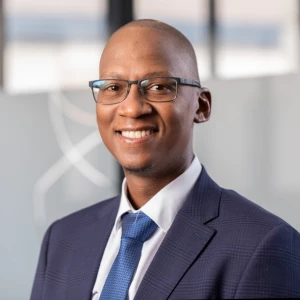I recently applied for an associate consultant position, and I just finished the first interview with HR last Thursday. I am expected to receive an update on Monday, but before then I was told the next round will be two case interviews. Consulting is a new 'field' for me as I got my Masters in Biostatistics and I am mostly used to addressing health and public health-related problems. However, I am interested in the field of consulting because you directly contribute to solving the client's and patients' needs, and the feeling of satisfaction is there which I do not get in my previous projects. How can I prepare for the case interviews if I am still uncertain if I passed the first round?
Preparing for Case Interviews in Consulting with a Biostatistics Background


Hi,
Congratulations by securing the interview.
I propose to leverage 3 type of sources:
1) Try to understand the basics of casing by reading case materials (e.g., Crafting cases, Case in Point or Case interview secrets)
2) Practice cases with peers (o.a., via the Preplounge platform
3) Practice cases with coaching in order to detect your main points of improvement and get additional practice.
In general, I would recommend you have solved at least 20 cases before the interview. Feel free to schedule a free intro call.
Mattijs

Hi there!
Congratulations on your journey so far, CV screening per se is already a challenge in this industry.
Being objective, you can prepare for case interview using free resources such as Crafting Cases course and by doing mock sessions with peers that have significant experience with case interview (usually those that got to the final rounds of T2/MBB). If you don’t have those people to count with, a coach as myself would be needed.
Happy to chat more and understand better your situation to give you a more personalized guidance. I offer a 20min free consultation, feel free to DM me if that sounds helpful :-)
Best,
Mari

Hi,
Thanks for your question.
First, congratulations on getting selected on the interview process. Consulting interviews are not easy to get especially when you are from a non-standard background.
To answer your question about case prep:
Consulting is a very competitive field and case prep takes time, especially for someone new to it. So, I would advise you to start case prep irrespective of what the outcome of your HR interview is. Case interviews are standard for consulting interviews so if you want to go that route, you should start preparing now instead of waiting for the interview scheduling.
Some pointers:
For the current interview:
If you are completely new to case prep, start with the book Case Interview secrets by Victor Cheng to get an idea what it is about, start practicing with peers in prep lounge and try to do at least one of two cases with a coach, before the upcoming interview.
For the long term:
If you continue to prepare for case interviews, then you should still go through the book (it is recommended as a starting point by consulting clubs of most MBA schools), learn the standard case frameworks that are foundational, practice with peers, practice cases from case books. Work with a coach if you want to build foundational skills, take your casing skills to next level or shorten the learning curve.
Feel free to schedule a free intro session with me if you have questions about consulting or prep. You will find the "book an intro" button on my profile.
Thanks,
Soh

Hey Winnie,
The simple answer:
- Understand the format of how case interviews are done / run
- On the one side, it's general information around the flow of interviews and then deep-diving into each of the specific elements
- On the other, it's getting specific information from the firm you've applied to (i.e. to know if there's any specific nuances you should be aware of)
- Do as much live practice with peers as you can:
- For example, use PrepLounge's platform to find peers to practice with
Coaching can be a great avenue given you may be more time-constricted and would get tailored developmental feedback designed to optimize your chances for the next rounds
(Feel free to reach out if there's anything specifically on the above that you'd like to discuss in greater details)
Wishing you all the best!

Hi there,
Just to add on to what have been said. If you are really keen to get into consulting, don't wait until you are certain that you pass HR round then start preparation. It takes time (not 1-2 weeks, but likely a few months) to get to a master level of case interview. Many candidates start case preparation even before they send in their resume.
If you don't feel ready, don't rush into the case interview either. You can also ask to for a delay in the date of case interview. Such request happens and is not new to recruiting team.
Good luck,
Emily

Hi Winnie,
First of all, congratulations on the progress in the application process thus far!
I would be happy to share my thoughts on your question:
- First of all, I would strongly advise you to start preparing immediately, preferably with an experienced coach like myself, to get the necessary acceleration in your preparation process. Most candidates spend several weeks to months preparing for case study interviews.
- Moreover, depending on the recruiter's proposed date, I would advise you to ask to postpone the next interview round until you really feel well prepared. There is no point in going to interviews that you know you are not prepared for.
You can find more on this topic here: How to succeed in the final interview round.
If you would like a more detailed discussion on how to best prepare for your upcoming interviews, please don't hesitate to contact me directly.
Best,
Hagen

You have to assume you will pass to the case rounds. Otherwise you won't be ready on time.

Hey there,
Congrats on making it this far! :-)
Make sure you understand and learn the basics for each part of the case (structuring, charts, math), which is
A replicable step-by-step for each part of the case interview
The right thinking techniques around the individual parts (e.g., what's a framework, what is evaluated, how can I ensure I think about it the correct way, what are some shortcuts to get to the answer quickly, etc.)
Simple communication templates to help you communicate your insights as well as ask for data in the right way to drive the case forward
The key reason why candidates fail their case interviews and don't improve with practice is because they never learn the right approach and techniques to begin with. They might go through 30-40 cases, just repeating the same mistakes over and over again. There is often no strong baseline.
- There are several approaches you can take to establish this baseline and avoid stalling in your preparation, such as hiring a skilled coach, reading the right materials, or enrolling in relevant courses. For example, my book provides direct guidance tailored to modern case interviews. It covers all the essential points mentioned here, and more, while also offering a detailed preparation plan. You can find it on Amazon
Avoid generic advice and framework memorization approaches. This will only hurt your performance and waste a ton of time (why -> check out the first post here: https://www.preplounge.com/en/consulting-forum/how-goodrelevant-is-the-case-in-point-book-for-case-prep-1984)
Once you have that baseline it's time to practice and internalize the skills to create the right profile, polishing your strengths and lifting your weaknesses to a robust-enough level
- Practice drills alone (structure, chart, math) and practice full cases with other excellent candidates that know the right habits and approach. It is crucial that you are practicing with really good peers, otherwise, it's a waste of time. Practicing drills on your own is a huge effectivity and efficiency booster since you can go over many more questions in a shorter amount of time compared to practicing with peers. Do both in parallel! You want to spend your time where it is most useful, e.g., if you struggle with math focus on math drills, etc.
Focus on quality over quantity. Doing 50+ cases does not mean much if you are not applying the right habits to score high and do a detailed debrief after every case to improve. You want to move from bad to good for your weaknesses and good to great for your strengths --> use the feedback from your previous experience and tailor your prep accordingly
Consider booking at least an initial coaching session to get a detailed and objective evaluation of your performance + learn the right habits for every case regardless of context and framework + get a tailored preparation plan out of the session that will set you up for an effective and efficient prep.
- Don't forget the fit interview part. Prepare answers for all the typical fit questions and stories (3-5 hours) and rehearse them a couple of times (5 hours)
All the best,
Florian













